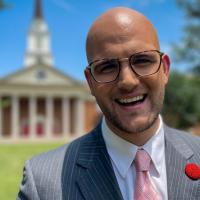Faith as the Cornerstone: Jimmy Carter's Life of Service and Humility
Former President Jimmy Carter, who passed away on Sunday at the age of 100, leaves behind a legacy shaped by his faith and humanitarian work. While his presidency faced notable challenges, many believe his most profound impact began after he left the White House.
Rev. Samuel Rodriguez, president of the National Hispanic Christian Leadership Conference, highlighted the character traits that defined Carter's life. "Jimmy Carter embodies – via the conduit of his faith – integrity, humility, and compassion. He embodied integrity—never a scandal. Humility, of course, and then compassion," Rodriguez said.
The world is mourning the death of America's 39th president, with leaders of faith pointing to a legacy that began in earnest after his presidency.
Rodriguez noted that Carter's term in office, marked by the Iran hostage crisis, high inflation, and unemployment, has often been deemed "mediocre at best" by historians. However, Rodriguez emphasized, "After his presidency, he literally changed the world."
Carter, who was the longest-living president in American history, transitioned from statesman to humanitarian. Through the Carter Center in Atlanta, Georgia, he championed initiatives such as building homes, monitoring foreign elections, and advocating for human rights globally. He once reflected, "Looking back on it, I wouldn't change it. The life we've had since then—35 or more years—the Carter Center has opened up new opportunities to serve in over 80 countries in the world."
Many Americans are remembering Carter's commitment to service. Korean War veteran Richard Hopkins expressed his admiration, saying, "I really appreciate him as an ex-president, building houses and all the things he's done."
In Carter's hometown of Plains, Georgia, visitors like Rev. Joe Parramore traveled long distances to honor his memory. Parramore noted, "I think that's the one word that sums it up, is his humanness and his humility." Others, like Matt Pitlock of Tallahassee, reflected on Carter's accessibility and connection to everyday people. "You know, there were all these pictures he took with school kids, and he was constantly doing things with his church. You could just walk right up to him and talk to him," Pitlock said.
Carter's faith was a bedrock of his life and work. Rodriguez reflected, "The lasting legacy of President Jimmy Carter is that his commitment to Jesus Christ drove him to live a life of integrity, humility, and compassion, to change the world around him, to care for our neighbors, to love God, and to love those around us, even those we disagree with."
Internationally, Carter's death was noted by leaders such as the Israeli prime minister, who tweeted about his pivotal role in Middle East peace efforts. Carter's work included brokering peace agreements and advocating for a Palestinian state. However, his 2006 book, in which he accused Israel of practicing "apartheid" against Palestinians, sparked controversy.
Rodriguez acknowledged that he did not agree with all of Carter's political positions but respected his faith-driven life. "I do not agree with every single political policy advocated by President Jimmy Carter. I do agree with his commitment to the centrality of Christ as Lord and Savior," Rodriguez said.
Jimmy Carter will lie in state at the U.S. Capitol Rotunda before being buried in Georgia alongside his wife, Rosalynn Carter. His funeral is scheduled for January 9 at Washington National Cathedral.




